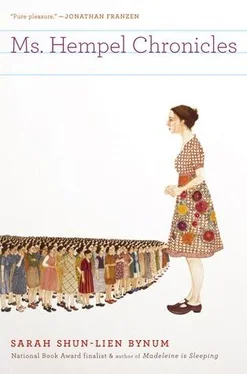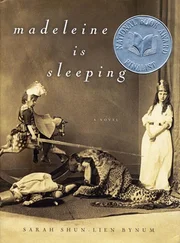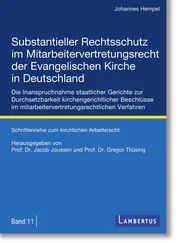It had the air of intellectual rigor, but you never had to bring piles of it home with you to correct. You just listened carefully and pretended that you were writing copious and detailed notes in your grade book. But she soon learned that she had no stomach for eighth-grade debate. It required a lot of newspaper reading, which she didn’t enjoy, and too often the students would make sweeping assertions about terrorists’ knowledge of chemical weaponry or atrocities committed by the New York City police or illegal dumping of toxic waste in residential neighborhoods, which never sounded quite right to her, but she didn’t feel sure enough to correct them. She found herself, during November’s Debate Unit, in the midst of a deafening storm of misinformation, a great deal of it rather frightening and, she feared, damaging to her kids’ sense of safety and well-being. So they returned to reading novels and poems, a territory across which she stalked with much greater confidence. The literature they read was often bleak and depressing, but it was fiction, and none of her kids needed to worry about getting stranded on a desert island or working as itinerant laborers on an isolated and soul-crushing ranch.
This was her policy: lots of pop quizzes, because she could correct them easily in front of the television, and because they made her kids feel always a little bit afraid. But pop quizzes were not without their own pleasures, which she knew with a certainty stemming from her own days as a student. Now, as teacher, she would glide into her classroom, the stack of photocopied pages still warm against her chest, and she would sing out to them, “I have a surprise for you!” The kids would groan together, like a Greek chorus, but still they cleared off their desks, tucked away their books, swiveled their pencils in their tiny plastic sharpeners with a resignation and an eagerness she recognized. Because what are quizzes? They are everything that is reassuring about school: a line for your name; ten questions; blank spaces; extra credit at the end.
There were of course those children who didn’t thrive under such conditions. Who muttered at her, or who cried, or who wrote nothing except their names and a heavy dark F at the top of the page: the self-condemned. The boy now lugging a didgeridoo onto the stage had been one of those: Edward Ashe, former piano prodigy, who by eighth grade had settled into a catatonic state interrupted only by moments of silent, unrelieved terror whenever she approached his desk. He had the biggest eyes she had ever seen on a boy, and he would widen them, like a camera aperture on a gloomy day, to suggest innocence and surprise: We were supposed to read chapter two last night? So genuinely panicked, so unconvinced by his own excuses, Edward could excite only pity. Ms. Hempel would move away and put another zero beside his name in her blue grade book. She did not believe in humiliation, though some other teachers exercised it to remarkable effect; she did not believe in making children unhappy when so many already were.
Edward, for example; he loved Scott Joplin, and had even composed his own ragtime waltzes, a fact that Ms. Hempel found difficult to believe; her imagination was incapable of seeing Edward Ashe’s hands bobbing above the keyboard, his body rocking back and forth on the bench. The Edward she knew moved with a languor that sometimes slowed into complete suspension. When the period ended and the other children bombarded themselves against the door, he would remain in his seat and blink placidly. He never touched the piano now. But he would occasionally become animated by an overwhelming desire to communicate: he entertained his homeroom by tucking the bottom of his T-shirt beneath his chin, inhaling enormous breaths and distending his belly until he appeared pregnant, his skin stretched into a luminous and flawless dome rising above his corduroys. He had also perfected another trick, which involved string coming out of his nose. The kids particularly loved this one, but Ms. Hempel could not bring herself to watch it. And once he learned that she, too, owned and cared for a Colombian red-tailed boa constrictor, he would sometimes startle her by asking, in the lunchroom, or coming out of the library: “So how’s he doing?” It would take Ms. Hempel a moment to figure out which he Edward was referring to. “He’s very well,” she would say, finally. “He shed last night.”
Edward could write beautifully. He told tales from the perspectives of his beloved animals: three tarantulas, a ball python, and a boa constrictor. His favorite protagonist was the female tarantula, named Jenny. Night falls. She is awoken by a hungry ache inside her belly. She stretches out her furry legs and surveys the sand spreading out around her. Hurrah! A small rustling in the distance. A cricket, a nice cute cricket! In another story, he described Jenny gazing sadly out the glass walls of her tank. She watches a common household spider, busily lowering itself from the back of an upholstered chair. She is astounded by and envious of its weightlessness, its gift of self-suspension. She deplores her own earthbound and cumbersome state. Retreating to the darkness of a rock, away from the unforgiving glare of the heat lamp, Jenny thinks, I wish I were an acrobat, spinning in the air. Edward added a footnote that read: This story is unrealistic. Spiders have very poor eyesight. Jenny does not know that she lives inside a tank.
But now: Look at him! And that was the miracle of it all, how some kids found a way to grow into themselves. Edward stood in the middle of the stage, a tenth grader: stately, handsome, serene, his mouth pressed up against a gigantic wooden tube, producing beautiful and otherworldly sounds. The kids in the audience began to stamp their approval. “Eeeeedddddd!” someone howled. She could see Edward struggling not to smile; the strange, long moan trembled for a moment. And Ms. Hempel suddenly remembered the gift he had given her on the last day of eighth grade: The box, delicately wrapped in violet tissue paper, had fluttered in her hands, a small, insistent tremor, and instantly she knew what he had offered her. Through the cardboard, through the tissue paper, she felt a murmuring. “Oh, Edward!” she cried. “A rat!” It was the most thoughtful present of that year; she fed it to Marquez after school.
My milky thigh curves up to meet my cheek. That was what he had written. The assignment? A Description of Me. And whenever she saw Edward, that epithet sprang immediately to mind. As he toted his didgeridoo off the stage, she imagined the gluteal muscles contracting beneath his jeans. Ms. Hempel wiggled in her seat; her tights were easing their way off her hips, and she longed to yank them back up. But there was Mr. Roth, his nubby jacket scratching against her arm, and there was Mrs. Pierpont, who would turn to her and grin conspiratorially whenever the kid onstage did something clumsy and childlike. Ms. Hempel’s tights slid farther and farther.
The audience greeted the next performer with shrieks and whistles. It was Mr. Polidori, whom the yearbook had voted the sexiest teacher for three years in a row. This was especially impressive because he taught physics, which was generally considered an unsexy subject, and because he had a reputation for being an inflexible grader. But he wore large collars and shirts made out of synthetic fabrics; his glasses were small and quirky; he grew sideburns. And he also played guitar, a sleek black one, which he now settled into his lap. The shrieking continued. Mr. Polidori raised his eyebrows in mock surprise; he bent down to examine the tuning pegs.
Ms. Hempel did not think that she approved of him. Once, in the faculty lunchroom, he observed that Mr. Peele, their principal, resembled an enormous walking penis. Why become a teacher, she wondered, if you had difficulty with authority figures? Or maybe, it occurred to her, that’s why you did become a teacher. Mr. Polidori went out of his way to test the rules: he wore jeans and Converse sneakers, sauntered in late to faculty meetings. He freely confessed to having cheated a number of times when he was still in high school. Many of her colleagues, in fact, had cheated. Whenever the issue of ethics arose, someone would inevitably ask, “Well, we’ve all done it, haven’t we? Taken a peek at a neighbor’s test? Copied a passage out of an encyclopedia? Borrowed an older brother’s term paper?” But, no, Ms. Hempel had not. Even as a second or third grader, she’d had a keen awareness of intellectual property. Her sense of herself as a thinker would never have allowed her to pass off someone else’s work as her own; from her first days at school, she felt the importance of her mental endeavors. Her father was the one who had impressed upon her that intellectual labor is the most essential, the most valuable kind of work.
Читать дальше












